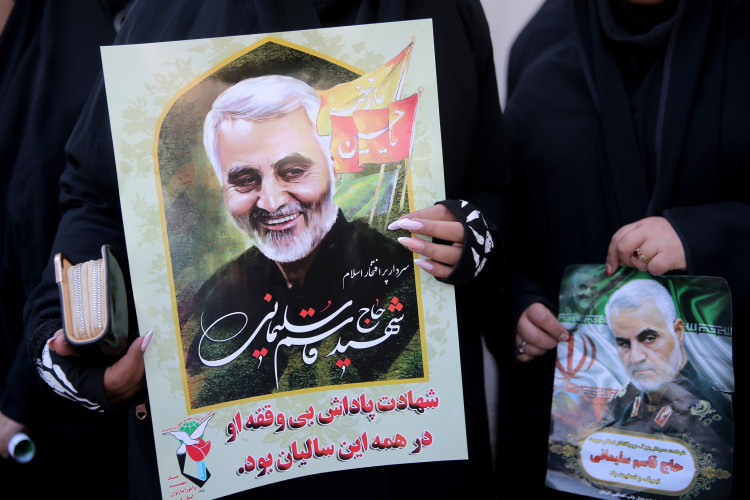Iran has once again asked the International Criminal Police Organization to arrest U.S. President Donald Trump and 47 American officials it claims are responsible for the "death by drone" of Maj. Gen. Qasem Soleimani on Jan. 3, 2020.
Soleimani was the commander of the Quds Force, the covert operations unit of the Islamic Revolutionary Guard engaged in Syria and Iraq.
He was assassinated at the Baghdad International Airport. His car was destroyed by missiles fired by a U.S. Air Force drone.
After Soleimani's death the U.S. Department of Defense said it carried out the killing "at the direction of the president" to deter future Iran attacks.
The killing was criticized as a violation of international law by Agnes Callamard, the United Nations Special Rapporteur on extrajudicial, summary or arbitrary executions.
On Tuesday, Iran judiciary spokesman Gholamhossein Esmaili said Iran requested Interpol arrest Trump and the other Americans. He said Iran was intent on pursuing and punishing Trump and those "who ordered and executed this crime."
Local authorities generally make arrests on behalf of the country requesting them. Interpol can't force countries to arrest or extradite suspects.
Iran's chief justice Ebrahim Raisi said Trump was the main target of prosecution and shouldn't be immune because of his political status.
"Trump's presidency has ended," Raisi said. "But even if his term hadn't ended it would be unacceptable to say someone shouldn't be accountable to law due to his administrative position."
Iran's Guardian Council, which controls the country's laws and elections, previously said Iran would pursue Trump after he left the White House.
Council spokesman Abbas Ali Kadkhodaei said Trump's legal immunity as head of state was problematic. On the other hand, he said "some international experts hold the view that after Trump's presidency is over this might be possible."
In June, Tehran prosecutor Ali Alqasimehr issued an arrest warrant for Trump and 35 other American officials for "murder and terrorism charges." Alqasimehr said Iran requested the arrest of Trump and the others.
Interpol at that time rejected Iran's request saying it was forbidden from undertaking "any intervention or activities of a political, military, religious or racial character."






